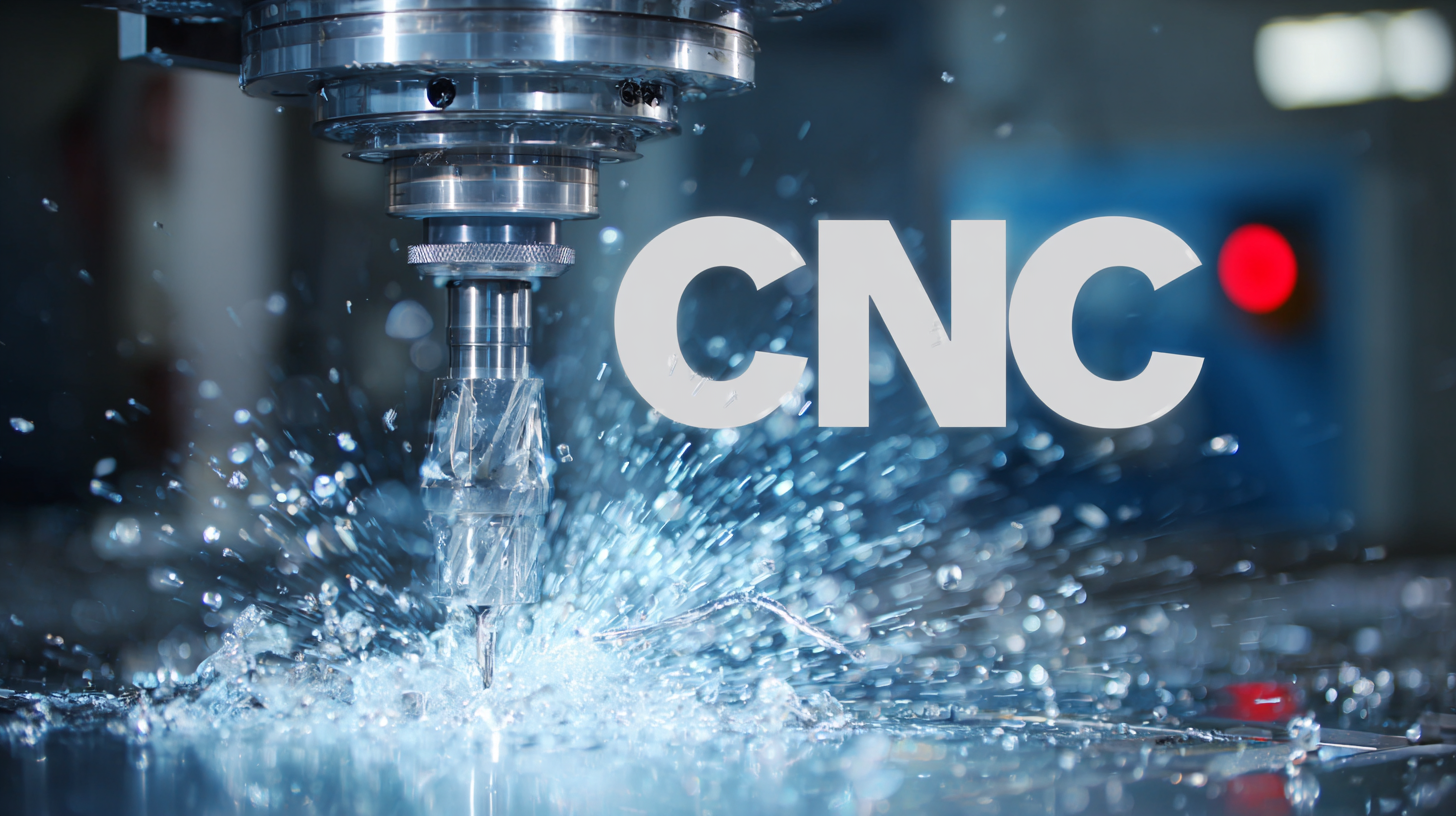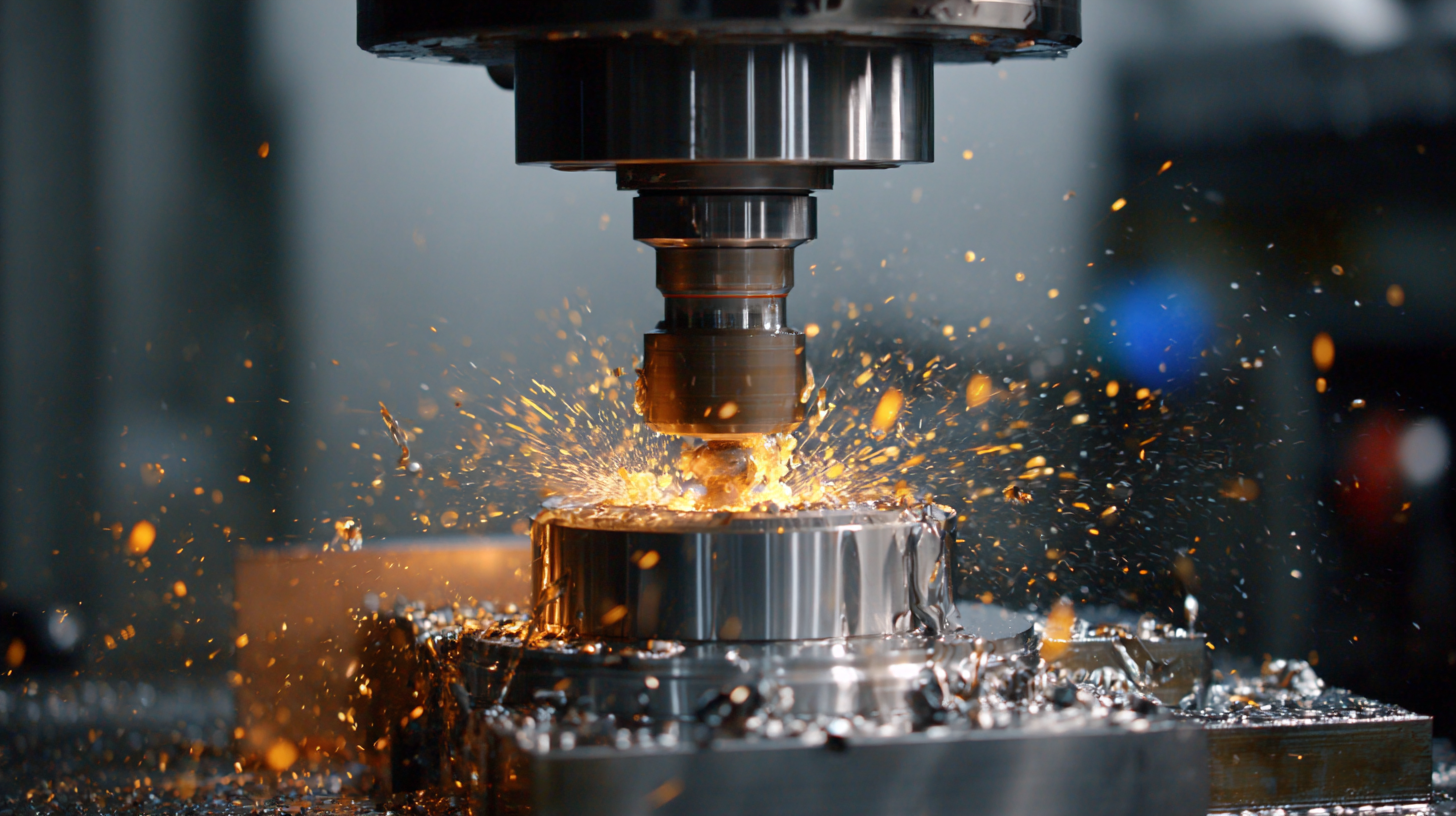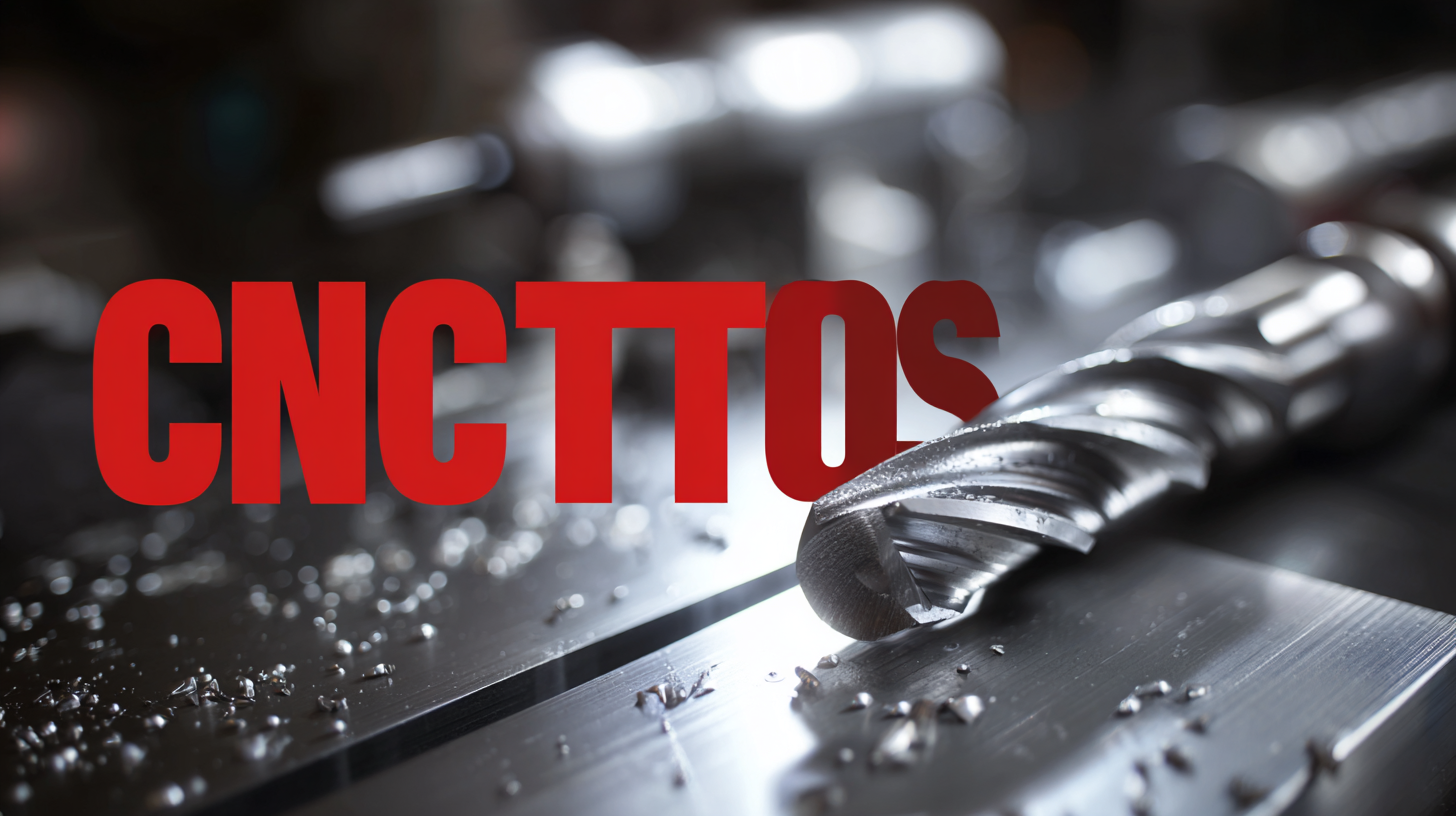How to Select the Best CNC Machine Tools for Your Manufacturing Needs
In the ever-evolving landscape of manufacturing, the selection of the right CNC machine tools plays a pivotal role in enhancing productivity and maintaining competitive advantage. According to a report by MarketsandMarkets, the global CNC machine tools market is projected to reach approximately $88 billion by 2026, growing at a CAGR of 6.9% from 2021. This growth is driven by the increasing demand for precision manufacturing across various industries, including automotive, aerospace, and electronics. As China continues to solidify its status as a leader in global manufacturing, tapping into its advanced CNC machine tool technology becomes increasingly essential for manufacturers seeking to optimize their operations. Understanding the key factors that influence the selection of CNC machine tools will empower businesses to make informed decisions that align with their manufacturing needs and strategic goals.

Understanding Your Manufacturing Requirements for CNC Tool Selection
When selecting the best CNC machine tools for your manufacturing needs, understanding your specific manufacturing requirements is crucial. The selection process begins with a thorough analysis of the materials you will be working with. According to a report by Freedonia Group, the demand for CNC machines is projected to grow by over 5% annually through 2025, emphasizing the importance of tailored tools for various applications. For instance, if your production primarily focuses on metals, opting for a CNC machining center designed for cutting steel and aluminum would be necessary, as each material has distinct properties that affect machining parameters.

Moreover, considering the complexity of your projects is essential. A study from the National Institute of Standards and Technology (NIST) highlighted that manufacturers employing advanced CNC tools can reduce production time by up to 35%, showcasing the direct relationship between tool selection and operational efficiency. The features of CNC machines, such as automation capabilities and tool change speed, should align with your production volume and turnaround expectations. By aligning your CNC tool choice with your operational demands, you can significantly enhance productivity and reduce costs in the long run.
Key Factors to Consider When Choosing CNC Machine Tools
When selecting the best CNC machine tools for your manufacturing needs, it’s essential to delve into several key factors that can significantly influence your decision. Firstly, consider the type of tasks you will be performing. CNC machine tools come in various forms, such as drilling, milling, and turning tools, each suited for different applications. Understanding the specific requirements of your projects will help you choose the right type of machine and optimize your production efficiency.
Next, evaluate the coating types available for the tools. Coated tools can enhance performance and extend tool life by reducing friction and wear. Depending on your machining environment and materials, selecting either coated or uncoated tools can play a critical role in achieving high-quality finishes and reducing operational costs. Additionally, pay attention to user configuration preferences. Whether opting for manual or machine-based setups can impact your production workflow, operational skills of your team, and overall cost efficiency. Consider these factors comprehensively to make an informed choice that aligns with your long-term manufacturing goals.
How to Select the Best CNC Machine Tools for Your Manufacturing Needs
| Factor | Description | Importance Level |
|---|---|---|
| Type of CNC Machine | Different types include milling machines, lathes, and routers. Selection depends on the desired complexity and type of workpiece. | High |
| Material Compatibility | Ensure the CNC machine can handle the materials required for your projects, such as metal, plastic, or wood. | High |
| Precision and Tolerance | Different projects require varying levels of precision. Choose a machine that meets your tolerance standards. | High |
| Budget Constraints | Determine your budget, including costs for maintenance and tooling, to select an appropriate machine. | Medium |
| Software Compatibility | Check if the CNC machine is compatible with the CAD/CAM software you use for design and production. | Medium |
| Production Volume | Assess the expected production volume to determine the required speed and efficiency of the CNC machine. | High |
| Technical Support | Consider the availability of technical support and training from the manufacturer for troubleshooting and maintenance. | Medium |
Comparing Different Types of CNC Machines and Their Applications
When selecting the best CNC machines for your manufacturing needs, it's crucial to understand the various types and their specific applications. CNC routers, for example, excel in subtractive cutting processes for materials like wood, plastics, and light metals, making them ideal for prototypes and smaller production runs.
 Conversely, five-axis CNC machines offer unparalleled precision, allowing complex shapes and intricate details to be machined effectively. For shops focused on aluminum work, advanced milling machines designed specifically for this material can maximize efficiency and output due to aluminum's favorable strength-to-weight ratio.
Conversely, five-axis CNC machines offer unparalleled precision, allowing complex shapes and intricate details to be machined effectively. For shops focused on aluminum work, advanced milling machines designed specifically for this material can maximize efficiency and output due to aluminum's favorable strength-to-weight ratio.
Tip: When evaluating CNC machines, consider the materials you work with and the complexity of the parts you need to produce. Upgrading to a machine with integrated computer-aided design (CAD) and process planning (CAPP) capabilities can streamline operations and enhance overall productivity. According to recent market insights, businesses investing in AI-driven CNC technology are poised to significantly improve their production capabilities and maintain a competitive edge.
In addition, keep an eye on software compatibility. New updates in CNC software tools enable users to select compatible materials more efficiently, ensuring that your team can make informed choices based on up-to-date material characteristics. Always stay informed about the latest advancements in CNC technology to leverage the best tools for your specific manufacturing demands.
Evaluating Budget and Cost-Efficiency for CNC Tool Purchases
When selecting CNC machine tools for manufacturing, evaluating budget and cost-efficiency is crucial. A comprehensive cost evaluation model includes several key components such as setup costs, tool usage costs, and the amortization of machinery based on production volume. Understanding these costs can significantly impact the decision-making process, helping manufacturers choose tools that not only meet their technical requirements but also their financial constraints. By thoroughly analyzing costs associated with cutting parameters, businesses can optimize their machining processes and improve their bottom line.
Moreover, the implementation of automation, like robots, has become increasingly relevant in this cost assessment. While robots often come with a higher upfront investment, they can lead to substantial savings over time by reducing labor costs and enhancing production efficiency. As the aerospace sector has demonstrated, the adage "time is money" holds particularly true; quicker production cycles foster greater profitability. Furthermore, employing methods like Failure Modes, Effects, and Criticality Analysis (FMECA) can also enrich the decision-making process by providing insights into system reliability and performance, ultimately ensuring that the chosen CNC tools contribute positively to overall manufacturing efficiency and cost-effectiveness.
Analysis of CNC Machine Tool Costs vs. Features
The Importance of Technical Support and Training in CNC Machinery
When investing in CNC machine tools, the significance of technical support and training cannot be overstated. According to a report by the Association for Manufacturing Technology (AMT), 70% of machine tool failures can be traced back to user error, highlighting the critical role of proper training in maximizing machine efficiency and lifespan. A well-trained workforce not only reduces the likelihood of operational mishaps but also enhances productivity, with organizations reporting up to a 30% increase in output when comprehensive training programs are implemented.
Furthermore, robust technical support is essential for maintaining CNC machinery. A survey by Gardner Business Media found that 83% of manufacturers prioritize access to technical support when selecting a CNC machine supplier. Immediate assistance can minimize downtime, which is a crucial factor in maintaining competitive advantage. Moreover, the integration of advanced technology, such as IoT, demands that operators possess a sophisticated skill set to manage and troubleshoot these systems effectively.
Investing in both training and support ensures that manufacturers are not only equipped to utilize their CNC machines to their fullest potential but are also able to adapt swiftly to the evolving technological landscape.
